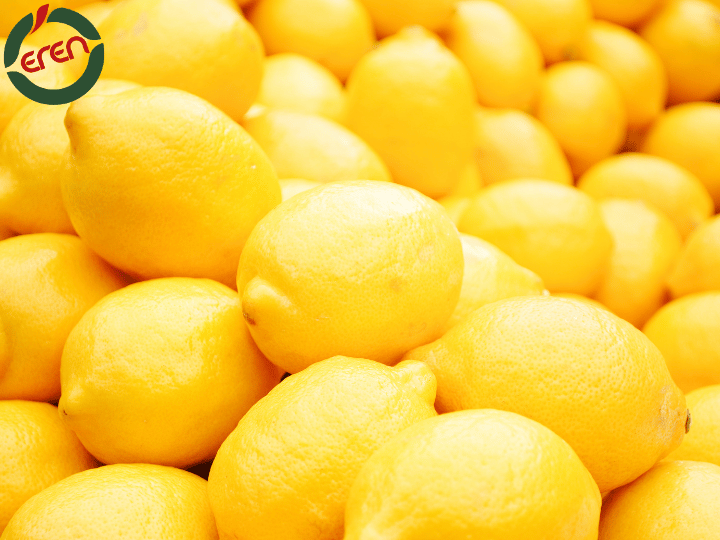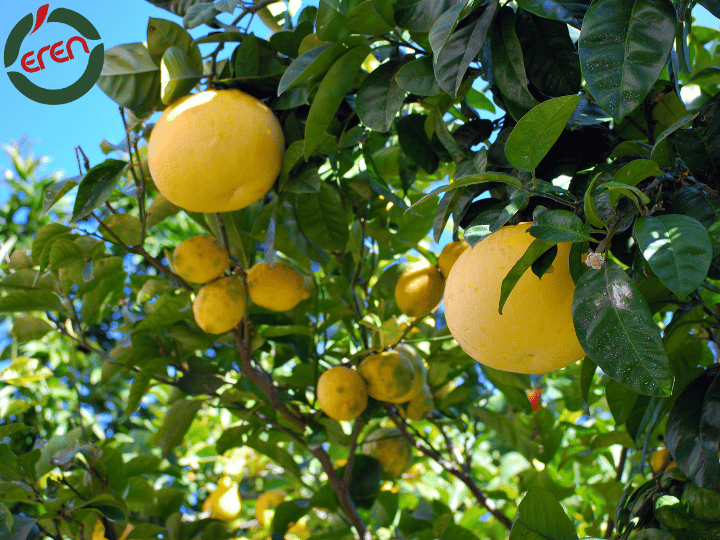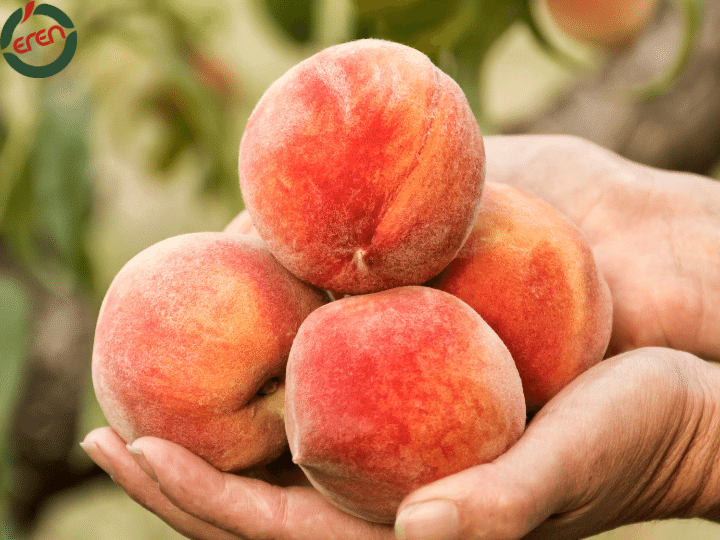Global Lemon Export: Analyzing Turkey's Role in the Worldwide Market
Turkey has carved out a niche in the export market for lemons, with major regions like Mersin and Adana leading in lemon production. The region of Mersin alone accounted for 55% of Turkey's lemon production in 2021, while Adana stood at 26%. Other regions have experienced little change over time, although there has indeed been a marked shift from Mersin to Adana over the years.
Lemon production had been quite regular in Turkey during 2017-2021, but in 2022, the production witnessed a commendable increase of 30% compared to the previous year. This was an impressive increase in production, but it corresponded to just a 3% increase in export figures of lemons, thus proving that most of the rise in production had not been channeled out into the international market. There is still quite a potential for developing the lemon export of Turkey further, which hasn't been utilized yet.
Turkey's Lemon Import and Export Dynamics
While being one of the key exporters of lemons, Turkey shows quite an increase in its lemon import. Imports surged from 4,000 tons in 2021 to 6,000 tons in 2022, an increase of 50%. This could be considered the highest level of lemon imports by the country since 2017, when the import touched 10,000 tons. While the data for 2023 is still pending, expected in the summer of 2024, these figures bring to light an increasing demand by Turkey in view of both internal consumption and export purposes.
The leading lemon exporters into the global market, for the year 2022, are Mexico, Spain, and Turkey. Both Mexico and Spain hold approximately a 20% market share of the global export market for lemons, while about 7% goes to Turkey. This puts Turkey behind South Africa in fourth place globally for lemon exports; however, the geographical position and the production volumes make Turkey one of the most important countries in the business.
Key Export Partners and Market Share
Mexico dominates the U.S. market, as its structure shows that 98.3% of its lemon exports are destined for the United States. The proximity advantage held by Mexico means that 80% of the import market in the U.S. is maintained by that nation and 7% of the remaining share by Colombia and Argentina.
All the while, Spain has become Europe's number one lemon exporter. Germany has been its biggest importers, with 38% coming from Spain's lemon export. Most of the lemon importation of Germany is from Spain, which represents 61% of all the importations, followed by South Africa and Italy and Brazil. While Turkey used to be Germany's top source of citrus, it meanwhile only exports around 3300 tons of lemons to the country, accounting for only 0.5% of the lemon export of Turkey.
Russia and Turkey: A Strong Citrus Trade Relationship
Turkey has a very healthy trade relationship with Russia when it comes to the citrus industry. Russian markets received 29% of the total lemon export from Turkey in 2022, positioning it as the single largest importer of Turkish lemons. Ukraine came second, as it accounted for 7% of Turkey's lemon exports. It is pretty obvious how dependent Russia is on Turkish lemons, given that Turkey provides 47% of the entire lemon importation to Russia. Yet, despite the volume of Turkish lemon exports to Russia in 2022 having increased by 5% compared to 2021, the value of those very exports decreased by 8%, further muddling dynamics within the realm of international trade.
The brilliant performance of lemon export from Turkey started with ups and downs in the last decade, 2018 and 2021 being significant increase years for the volume of exports; and decreased by 4% in volume this year in 2022 compared to the previous year. The contraction of export volumes illustrates how Turkish exporters face some serious difficulties holding Tightwood's position and enlarging their share in the very competitive global market.
Global Competitors: Mexico, Spain, and South Africa
Export of lemons from Mexico has been increasing in a linear manner from 2015, with only a small decrease back in 2018, then tying record-high export volumes in 2021. However, there was a decrease of 7% in lemon exports from 2021 to 2022 in Mexico. The fall of export of lemons in Mexico probably reflects the general trends observed in the global lemon market. Another worthy rival, Turkey, saw a reduction in the volume of export during this period.
Lemon exportation for Spain has been quite turbulent between 2013 and 2018, with highs and lows in volumes. Later, by 2019, exports of lemons from Spain crossed the 700,000-ton mark and remained so until 2022. In 2022, Spain experienced a fall of 14% in volume related to lemon export, while further evidence illustrated challenges facing even the most established lemon exporters.
Despite missing data for certain years, South Africa has recorded consistent growth in lemon exports from 2018. While countries in the top exporters list showed a decline in exports in 2022, such as Mexico, Spain, and Turkey, the country of South Africa was able to grow its exports by 15 percent over the same period. Such remarkable growth for a country that needs to cover such an immense distance to its main export markets has helped it establish itself as one of the major fresh lemon exporters.
Market Trends and Price Dynamics, 2018-2022
Over the past five years, world lemon prices have been quite volatile. After reaching its peak in 2020, the global price of lemons decreased in 2021 on the back of fluctuations across the world in demand and supply dynamics. In 2022, however, while this trend bounced back for Mexico and Spain, it continued to fall for Turkey and South Africa. Being among the top exporters with a minimum price in the world market did not necessarily bring about a tangible competitive edge for Turkey in the world market.
In 2022 total export volumes were almost level between South Africa and Turkey. However, due to the higher price that South Africa could secure for its lemons, the overall export value was higher than for Turkey. This represents an important reminder that while export volume growth is one thing, improving the perceived value of the product is critical in reaching maximum profitability.
Strategic trade agreements and good logistics performance, among other factors, have led to the well-being and success of South Africa in the global lemon market. For instance, the citrus trade agreement between South Africa and China was renegotiated in August 2021, with an incredible increase of 1000% in the export of lemons from South Africa to China. This agreement gave South Africa an outstanding share of the Chinese market previously captured by other exporters of lemons.
China's Growing Influence in Lemon Imports
In recent years, China has become an increasingly significant importer of lemons. In 2022, China's total lemon imports reached 14,366 tons, of which 9,592 tons were supplied by South Africa. This change in the trade structure reflects a decline in imports by China from other countries while the proportion sourced by China from South Africa has increased. IMPORTANT; South Africa is over twice the distance from China compared with that of Turkey, yet it has managed to get a bigger share of the Chinese market.
Thus, the-booming importance of China as an important importer brings both challenges and opportunities for exporters of Turkish lemons. On one hand, increased competition from South Africa and other countries could limit Turkey's market share in China. On the other hand, the increasing demand for lemons that occurs in China creates a wide opportunity for exporters to expand by offering competitive prices and high-quality products
Challenges and Opportunities for Turkish Lemon Exporters
In this aspect, export businesses need to look at new markets and efficiency if Turkish lemon exporters are to be able to hold a competitive edge in the global market. In the absence of such changes, Turkey would be left behind further with every passing time in terms of volume and value when looked upon from the perspective of competitors like those coming from South Africa, who managed to grasp the opportunities that were emerging and capitalized upon those. Success for Turkish lemon exporters would, therefore, come through diversification of reach of markets, optimization of logistics, and more value addition to the products being sold.
If you are looking for a reliable partner in the field of lemon export, Eren is at your service. We will do our best to apply our knowledge and our attitude toward quality in order that your needs for lemon export are treated with care and accuracy. Do not hesitate to contact us for more details on how we could help your business.

 Lemon
Lemon Mandarin
Mandarin Orange
Orange Grapefruit
Grapefruit Fruits
Fruits Vegetables
Vegetables





